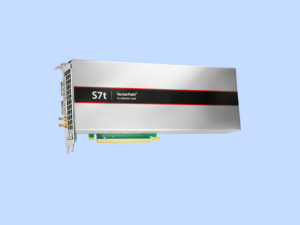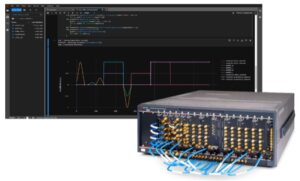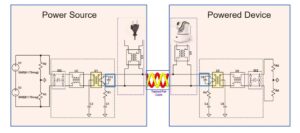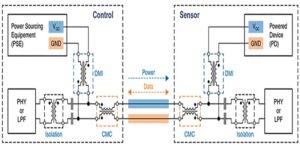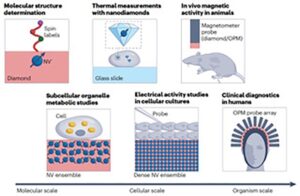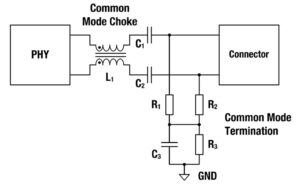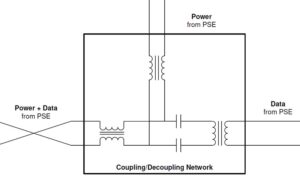There are five standard sizes for PCIe cards and two sizes of mini PCIe. In addition, some larger PCIe slots can accommodate more than one card using a process called bifurcation. This FAQ looks at the five standard sizes and common uses for them. Then turns to mini PCIe and its applications and closes with […]
FAQ
What’s quantum control and how is it used?
Quantum control has several uses. Its primary use is to prevent the performance degradation of quantum computers as a result of the decoherence of qubits. It’s also an important function in the field of quantum sensing; for information on that application, see the FAQ on “What’s a quantum sensor?” This FAQ reviews the current status […]
What inductor characteristics are needed for PoDL in Single-Pair Ethernet?
Basic Single-Pair Ethernet (SPE) requires at least a common mode inductor (CMI). When power over data line (PoDL) functionality is added, so is a differential mode inductor (DMI) and sometimes an isolation transformer. These magnetic elements interact and can reduce SPE performance. Correctly specifying them is important to ensure efficient operation and reliable data transfer. […]
What’s the difference between an SPE isolation inductor and a transformer?
Single-Pair Ethernet (SPE) isolation inductors and transformers are available in several configurations. They are used in applications where simple capacitive isolation is not sufficient. There are two types of SPE isolation transformers, simple chip transformer designs and so-called case transformers that can combine the functions of isolation with common mode rejection. This FAQ looks at […]
What’s a quantum sensor?
Quantum sensing is important in the control of quantum computers and in advanced sensor applications ranging from navigation to medical diagnosis. For a discussion of quantum control, check out the FAQ “What’s quantum control and how is it used?” This FAQ looks at how quantum sensing is used to measure various physical parameters and efforts […]
How do common mode inductors work in Single-Pair Ethernet?
Common mode inductors (CMIs) are important components in all Single-Pair Ethernet (SPE) designs and are part of the coupling and decoupling network (CDN) that connects the SPE electronics to the network cabling. This FAQ begins with a brief review of the operation of CMIs and then looks at how the CDN fits into SPE designs […]
How to specify differential mode inductors for Single-Pair Ethernet?
Differential mode inductors (DMIs) are important components for Power over Data Line (PoDL) and the related Single Pair power over Ethernet (SPoE) standards. This FAQ begins with a review of where DMIs fit into Single-Pair Ethernet (SPE), then compares PoDL and SPoE implementations and application targets. Coupling and decoupling DMIs play an important role in […]
What is Single-Pair Ethernet and PoDL?
Single-Pair Ethernet (SPE) is defined in IEEE 802.3 and adapts the basic Ethernet standard to use a single wire pair. Power over data line (PoDL) is sometimes referred to as power over Ethernet (PoE) adapted for SPE. That’s only partially correct, PoDL is optimized specifically for use in automotive and similar environments, and the newer […]
How do MCUs support automotive infotainment systems?
In vehicle infotainment (IVI) systems are increasingly important and complex. What’s needed from a microcontroller (MCU) in an IVI? A lot, but exactly what depends on the sophistication and mix of info and ‘tainment. Multiple cores are often needed, and so are hardware accelerators for compute-intensive functions. Considerations include connectivity, human-machine interfaces (HMIs) beyond simple […]
Key factors to optimize power consumption in an embedded device
In the previous article, we learned what a low-power system is, so now we’ll talk about the key factors which can make a power-efficient embedded system design. The power-efficient embedded system is comprised of hardware and software design along with proper components selection. Optimization is achieved by efficient implementation in different stages using different techniques. […]

